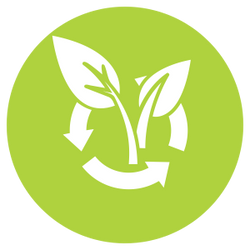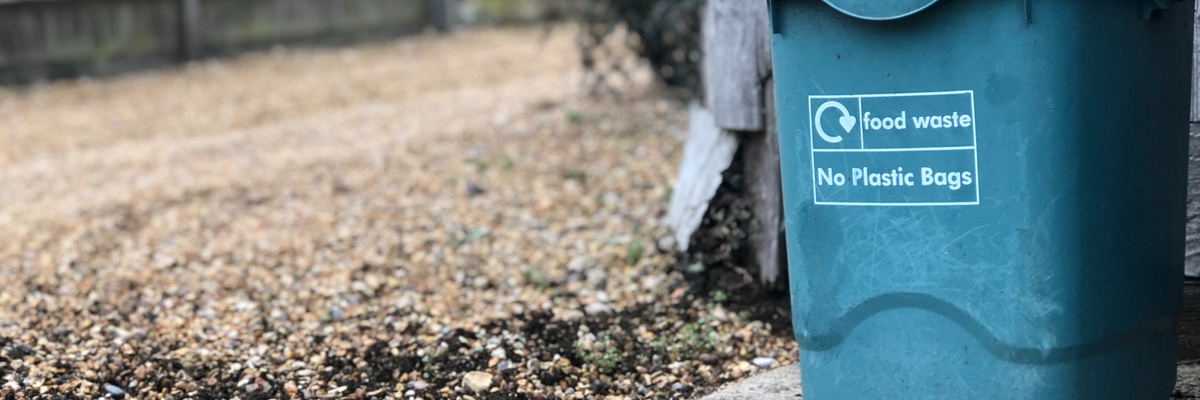

Welcome to Community Composting on ChangeX. Food waste is the largest category of material in municipal landfills, where it creates methane, a powerful greenhouse gas. By composting our food waste we can greatly reduce the amounts of methane produced. In addition, the compost produced can reduce the need for chemical fertilizers and produce higher-yielding crops. We're excited to help you start a local composting program with your community group, church, school or workplace!
Welcome to Community Composting on ChangeX. Food waste is the largest category of material in municipal landfills, where it creates methane, a powerful greenhouse gas. By composting our food waste we can greatly reduce the amounts of methane produced. In addition, the compost produced can reduce the need for chemical fertilizers and produce higher-yielding crops. We're excited to help you start a local composting program with your community group, church, school or workplace!
COMMUNITY VERMICOMPOSTING IN SUBPODS:
- During April community volunteers installed 6 vermicompost Subpods into the raised vegetable beds in the Riverside Community Garden.
- Two volunteers Compost Managers developed a community education program and managed community participation in the program.
- Six volunteer leads, under the leadership of the Compost Managers, each managed a Subpod.
- The community composting program was publicized through social media, via the Riverside Public Library newsletter, and at the local Health and Wellness Fair.
- In collaboration with the Riverside Public Library community composting classes were offered. They were attended by over 50 participants, many of whom signed up to participate in the program.
- Inspired by this initiative, the Presbyterian Food Pantry installed their own Subpod to compost their waste onsite.
- The Presbyterian Preschool implemented composting into their daily activities and school curriculum.
- Numerous class attendees took the knowledge they gained in these classes and installed Subpods in their private vegetable gardens to process their own kitchen waste.
- It is estimated that since the installation of the 6 Subpods in April, that about 500 gallons of kitchen waste has been diverted from landfills into these community compost bins, and that another 1,000 gallons of kitchen waste has been diverted into the additional Subpods installed in this community by private citizens and organizations, as a result of learning about composting through this initiative.
HOT COMPOST BINS
- A local gardener's 3,700 gallon hot composting system was opened to public composting that included garden compost (leaves, grass cuttings, chicken/duck/rabbit coop cleanings). In three months one entire 3,700 gallon batch of compost was completed. It is anticipated that these compost bins will be able to accommodate about 11,000 gallons of garden waste over the course of 1 year.
3 MONTH RESULTS:
Over the first 3 months of this initiative, the cumulative amount of waste diverted from landfills within this community, as a result of the access to composting and education to compost privately, amounted to approximately 5,200 gallons.
PROJECTED ANNUAL RESULTS:
It is projected that as a result of this composting initiative, including the compost bins in the community garden, the hot compost bins, and private compost bins, about 20,000 gallons of kitchen and garden waste will be diverted from landfills, turned into compost, and added back to local vegetable gardens annually.
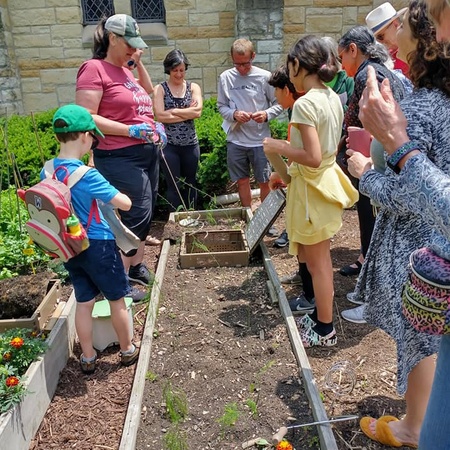
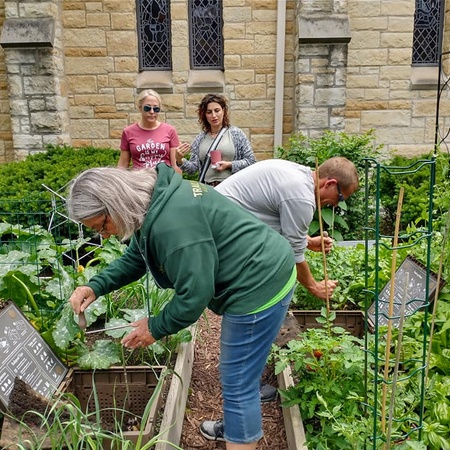
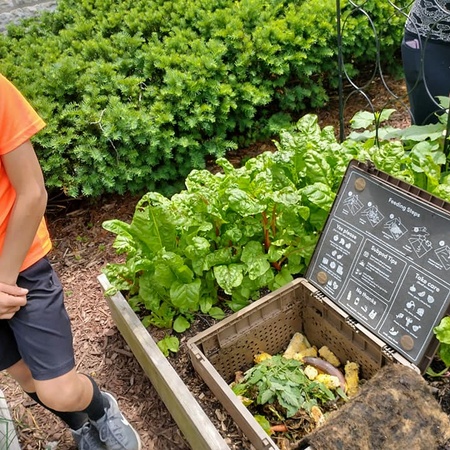
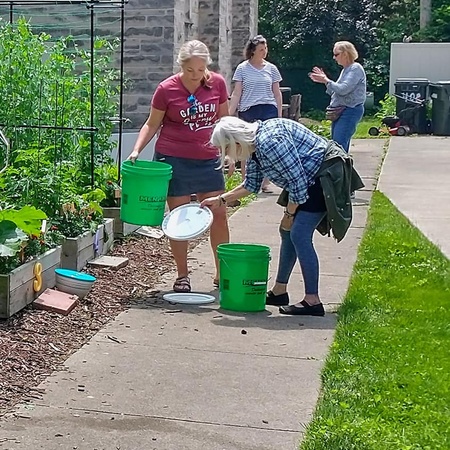
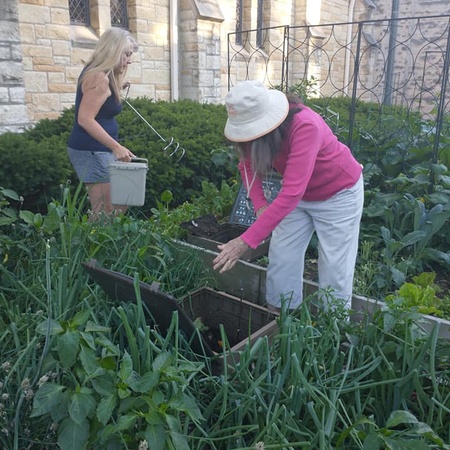
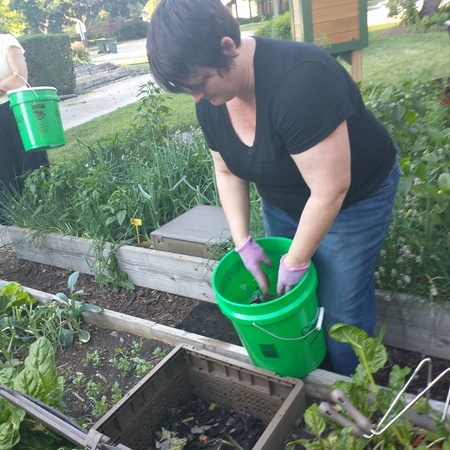
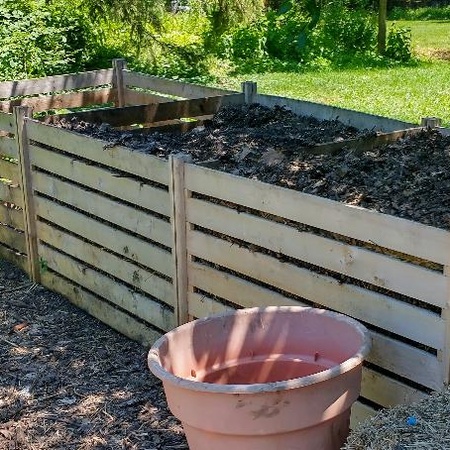
Hot composting is so rewarding! In just 3 months these hot compost bins have transformed over 3,700 gallons of community organic waste into the most amazing compost. One third has already been spread on local vegetable gardens and the other two thirds will be spread soon. The second batch of 3,700 gallons will be beginning soon.
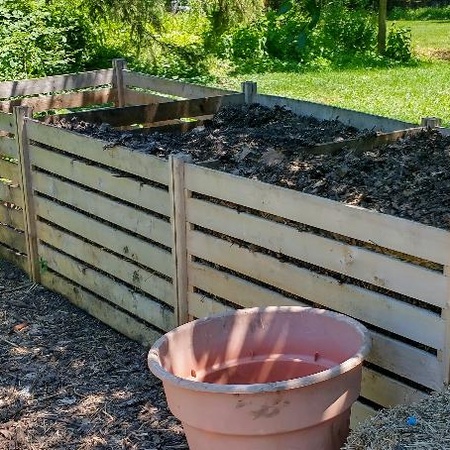
A look inside the Subpod vermicompost bins.
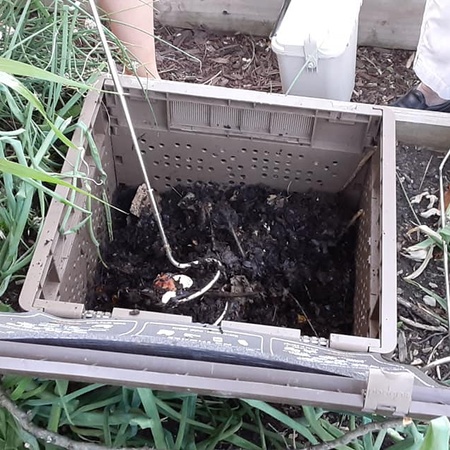
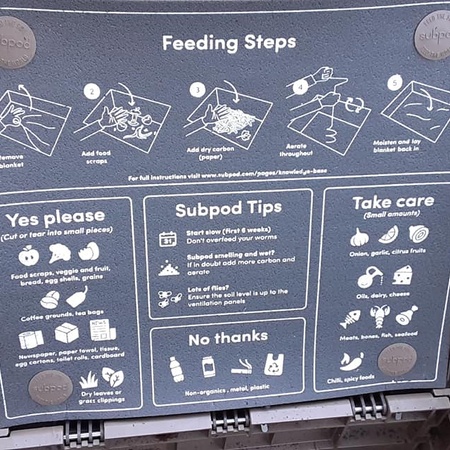
Adding compost and aerating the compost bins.
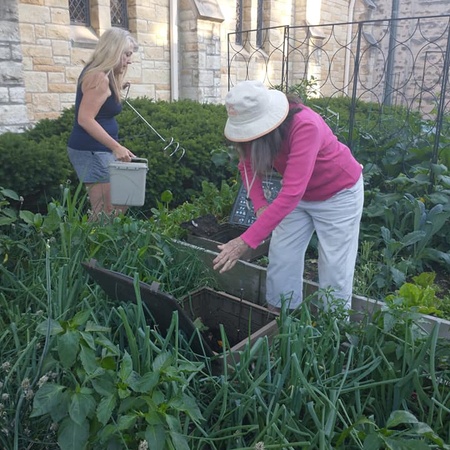
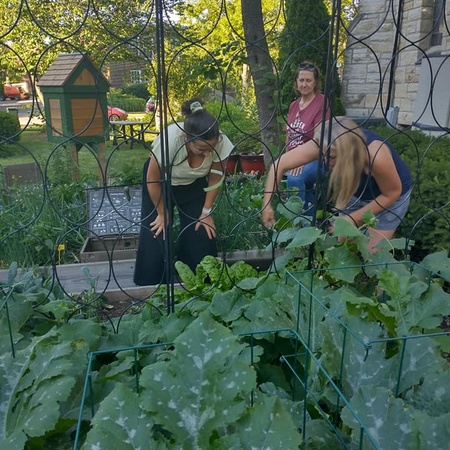
Community participant adding kitchen compost to the community garden compost bins.
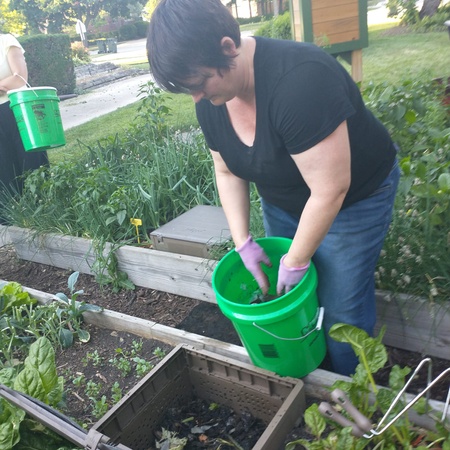
Another successful community composting class.
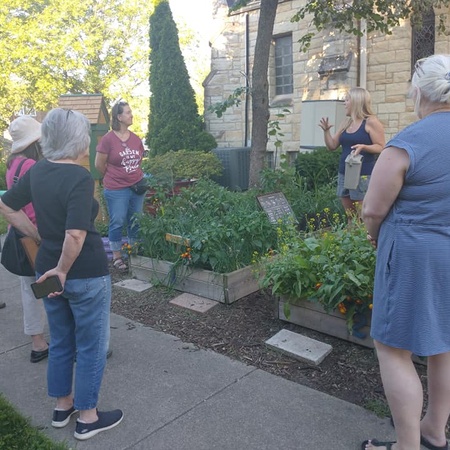
Harvesting compost-fueled vegetables is a community effort.
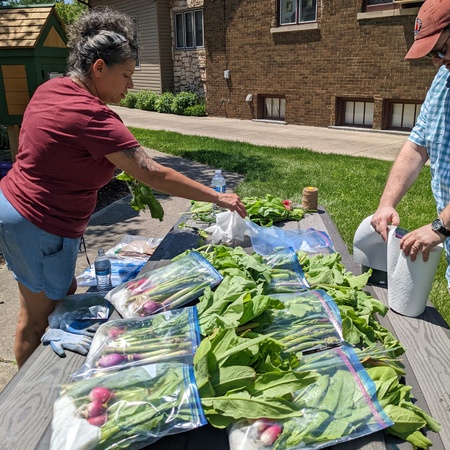
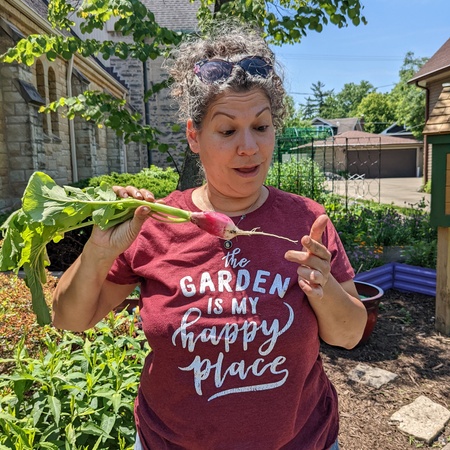
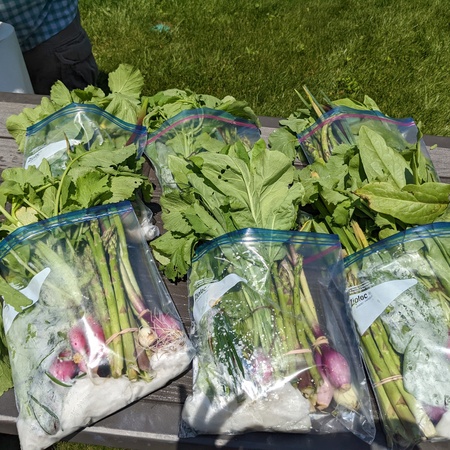
These gorgeous vegetables were grown in the Riverside Community Garden, fueled by the compost from this community composting project, and freely given to community members in need.
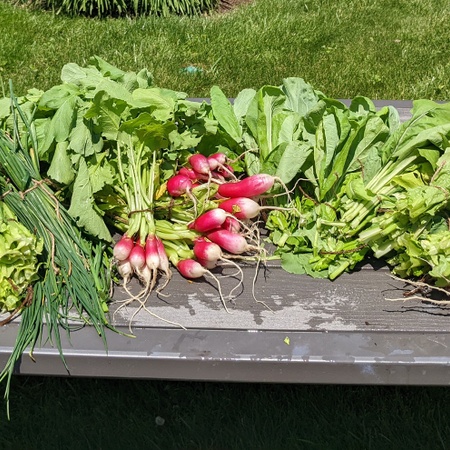
During just the two months of April and May 2022 over 3,700 gallons of community garden, kitchen, and duck, chicken, and rabbit coop cleanings have been diverted from landfills into these compost bins.
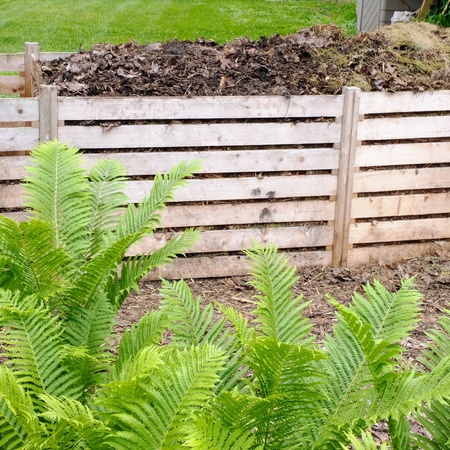
Buckets were given to participants to collect their kitchen waste and browns in to bring to the community compost bins.
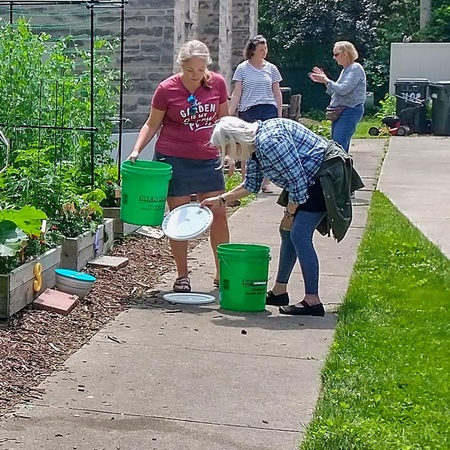
All 6 Subpods are thriving, the worms are multiplying, and their capacity to process compost is increasing.
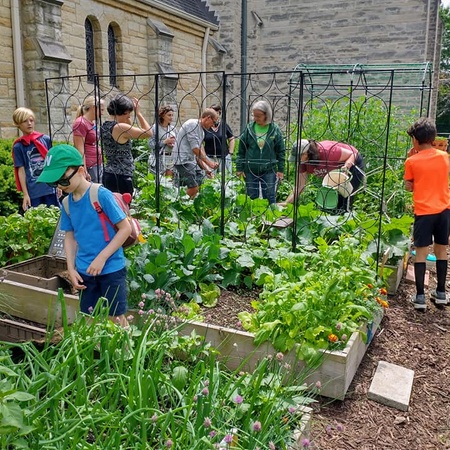
Community members learn what can be composted in the Subpods, what to avoid, and how to aerate.
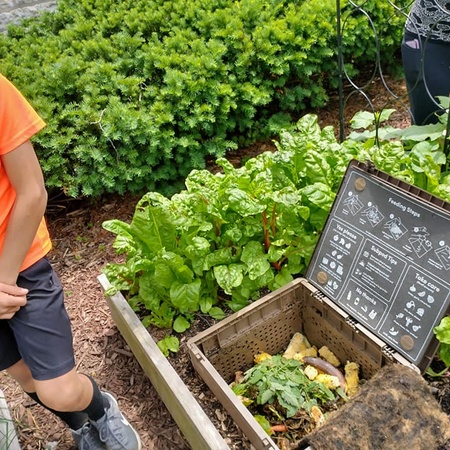
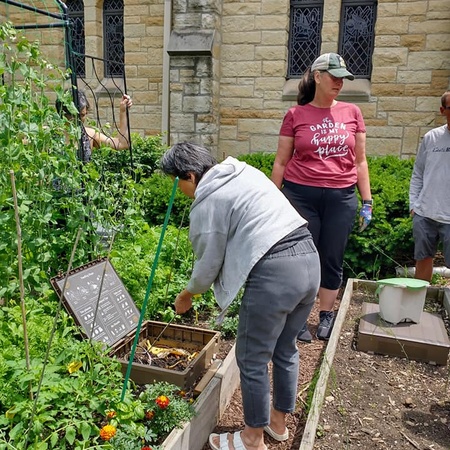
Excellent community composting training yesterday June 12th. Great participation, and lots of signups to participate.
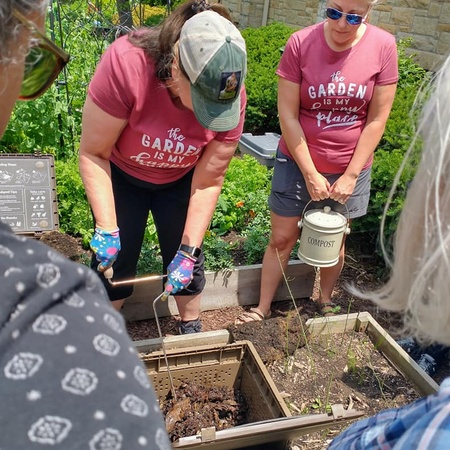
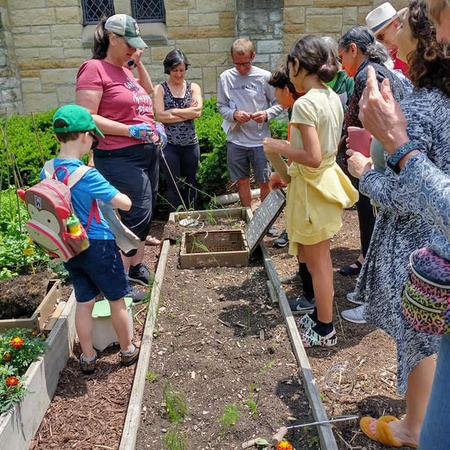
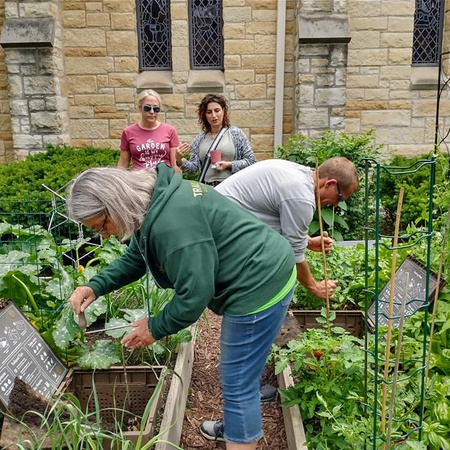
The Riverside Presbyterian Church Preschool's new compost Subpod. Soil, worms, and plants still to come. Composting will become part of everyday life for these preschoolers.
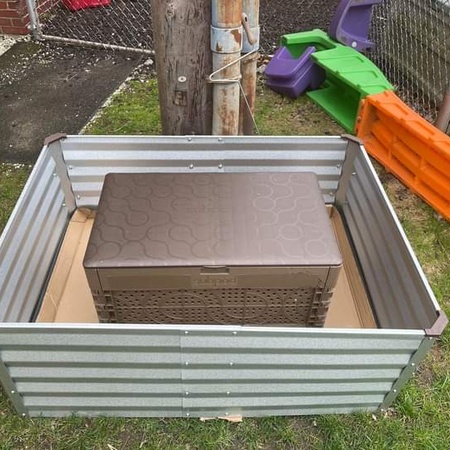
The Riverside Community Garden, in conjunction with the Riverside Public Library, is hosting three upcoming composting classes.
Come to the Riverside Community Garden for an informational session to learn about our new compost program!
At the training, you will learn composting best practices via a demonstration of our subpod system. Participants will be invited to become community garden compost drop-off members and will receive a complimentary 5-gallon compost container for at-home collection.
Sunday, June 12, 1-2PM
Thursday, June 16, 10-11AM
Wednesday, June 22, 6:30-7:30PM
The trainings will be held at the garden, which is located on the Ascension Lutheran Church side lot at 400 Nuttall Road.
